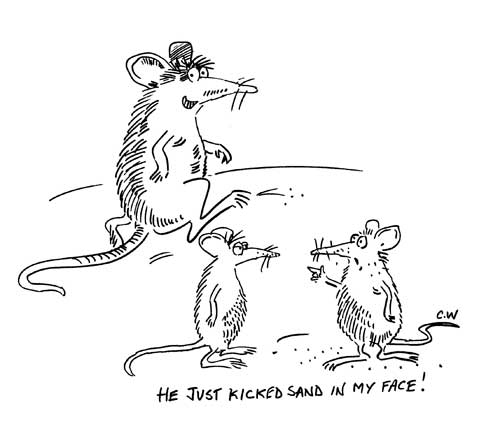|
|
Poor nutrition in the womb can affect offspring |
Research on rats at the University of Utah has shown that rat foetuses receiving poor nutrition in the womb become genetically primed to be born into an environment lacking proper nutrition. As a result of this genetic adaptation, the rats were likely to grow to smaller sizes than their normal counterparts. At the same time, they were also at higher risk of a host of health
problems throughout their lives, such as diabetes, growth retardation, cardiovascular disease,
obesity, and neurodevelopmental delays, among others. Although the study involved rats, the
genes and cellular mechanisms involved are the same as those in humans. Qi Fu, Xing Yu et al. Epigenetics: intrauterine growth retardation (IUGR) modifies the histone code along the rat hepatic IGF-1 gene. FASEB J., DOI: 10.1096/fj.08-124768
Click here for LINKS to manufacturers of nutrition and food supplements. 06/09 |









